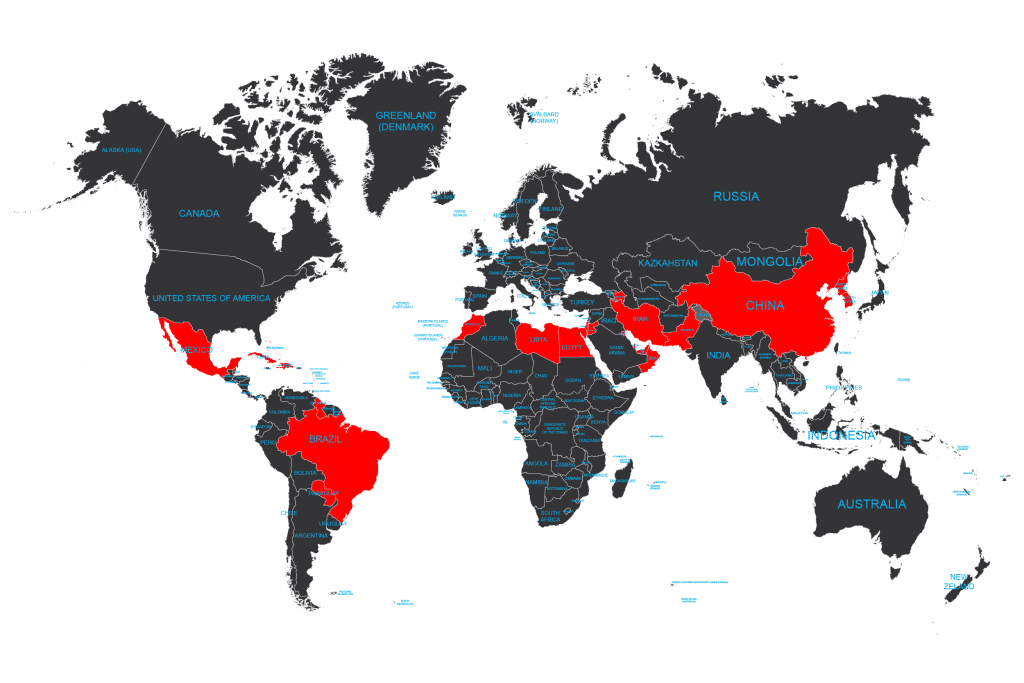There’s no doubt that VoIP’s popularity is increasing on a daily basis. People from around the world are using famous VoIP applications such as Viber and WhatsApp to send messages and call their friends and beloved ones. However, despite the limitless features of VoIP, you’ll be surprised to know that it’s blocked in many countries around the world for different reasons.
Investment and revenue
For some countries, such as UAE and Qatar, international calling fees are a major source of income. VoIP was being used by a huge number of users to make international calls as it’s cheaper and can offer a better call quality with a sufficient internet connection. This created an economical issue for the dominate, government owned telecom service providers and directly lowered their revenue. The government restricted VoIP services to protect their investments and regain both control and income.
Security and privacy
In 2013, VoIP was banned in Saudi Arabia, the Kingdom’s Communications and Information Technology Commission (CITC) stated it was to “protect society from any negative aspects that could harm the public interest”, though critics believe it was to gain more control over cyberspace to limit communications. However, the ban was lifted in September 2017 to stimulate the economy and encourage the growth of internet-based businesses.
Other countries, such as Algeria, blocked famous VoIP applications during exams period to prevent students cheating. Some other countries argue their blocking approach is for security reasons in times of political unrest, this is heavily connected to the fact that the failed coup attempt in Turkey in 2016 was planned and organised on WhatsApp mobile messaging service.
If you think VoIP should be allowed around the world, Read about how you can use VoIP to place international calls.
Suggested next article >>An essential guide to VoIP and the benefits of becoming a VoIP reseller
So, which countries block VoIP?
Here’s a list of countries that currently block VoIP or have restricted the access to voice calling services. Please note that this list may change with time depends on new legislations or arrangements in each country.
Country | Restriction |
Belize | Only offers government owned VoIP service |
Brazil | Only allows VoIP calling through government owned services. |
Caribbean Region | Blocks VoIP and Skype |
China | Blocks all VoIP services except those done through China Unicom and China Telecom. |
Cuba | Citizens have no access to computers, mobiles are very expensive and the internet connection is too slow. |
Egypt | The National Telecommunications Regulatory Authority in Egypt denied blocking any VoIP applications, but users are facing difficulties to make calls through them without VPN. |
Iran | It’s not clear if VoIP is blocked or not, but users reported connection difficulties with Skype. |
Jordan | Blocks Skype and VoIP. |
Mexico | Blocks VoIP services. |
Pakistan | Blocks VoIP |
South Korea | Connections with VoIP apps are unpredictable at best. |
North Korea | Blocks VoIP |
Kuwait | Blocks VoIP and Skype |
UAE | Blocks VoIP and Skype |
Oman | Blocks VoIP and Skype |
Morocco | Blocks VoIP |
Paraguay | Blocks VoIP and Skype |
Jordan | Blocks VoIP and Skype |
Israel | Blocks VoIP |
Qatar | Blocks VoIP and Skype |
Looking forward…
Blocking VoIP creates many challenges for people and businesses around the world, especially with the increasing need for such advanced technology that facilitates daily life and brings people and workers closer together at lower costs. However, the laws are changing and there are many negotiations between big tech companies such as Apple and Microsoft and some of the countries that blocks VoIP such as UAE to lift their ban on Skype and FaceTime. We hope that these negotiations will succeed as this will significantly help small and medium businesses to grow globally, encourage the establishment of internet-based businesses and bring people closer with their families abroad.
More articles on the legalities of VoIP and the Telecoms industry
| |
| VoIP call recording – GDPR and PCI implications |
If you have more questions, please don’t hesitate to call us on: 03300881182, or send us an email to: sales@vipvoip.co.uk


